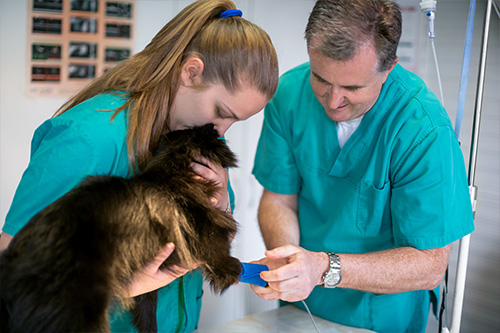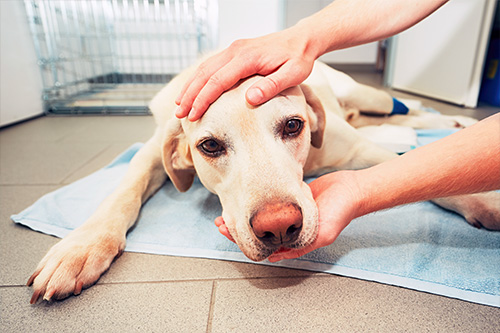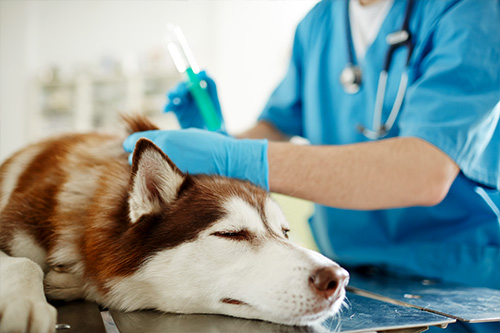
If travel, thunder, or fireworks upset your pet, he or she may benefit from tranquilization or sedation. While sedated, the animal will stay awake or sleep lightly but can be…
Making sure our patients remain safe during surgery and other medical procedures is extremely important to us. Our team of veterinarians and veterinary technicians is skilled in using anesthesia and monitoring patients to ensure their safety and provide the most comfortable experience. Anesthesia and patient monitoring vary greatly from clinic to clinic. You can be confident that we use the most effective and up-to-date protocols. The type of anesthesia we use depends on the procedure. Some require general anesthesia, while others may only call for local anesthesia. We also closely monitor every procedure, regardless of whether it’s routine or more advanced. For more specific information on our protocols, please see the individual descriptions or contact us with any questions.

If travel, thunder, or fireworks upset your pet, he or she may benefit from tranquilization or sedation. While sedated, the animal will stay awake or sleep lightly but can be…

We monitor our patients to keep them as safe as possible during procedures that require general anesthesia. A veterinary technician will continually assess your pet’s heart and respiratory rate, blood…

For some procedures, your pet will need to be administered general anesthesia so that he or she will be unconscious and not feel pain. Many pet owners worry about their…

If your pet is having a minor surgical or diagnostic procedure performed, we sometimes use a local anesthetic to help control pain. For example, when we perform a biopsy (in…